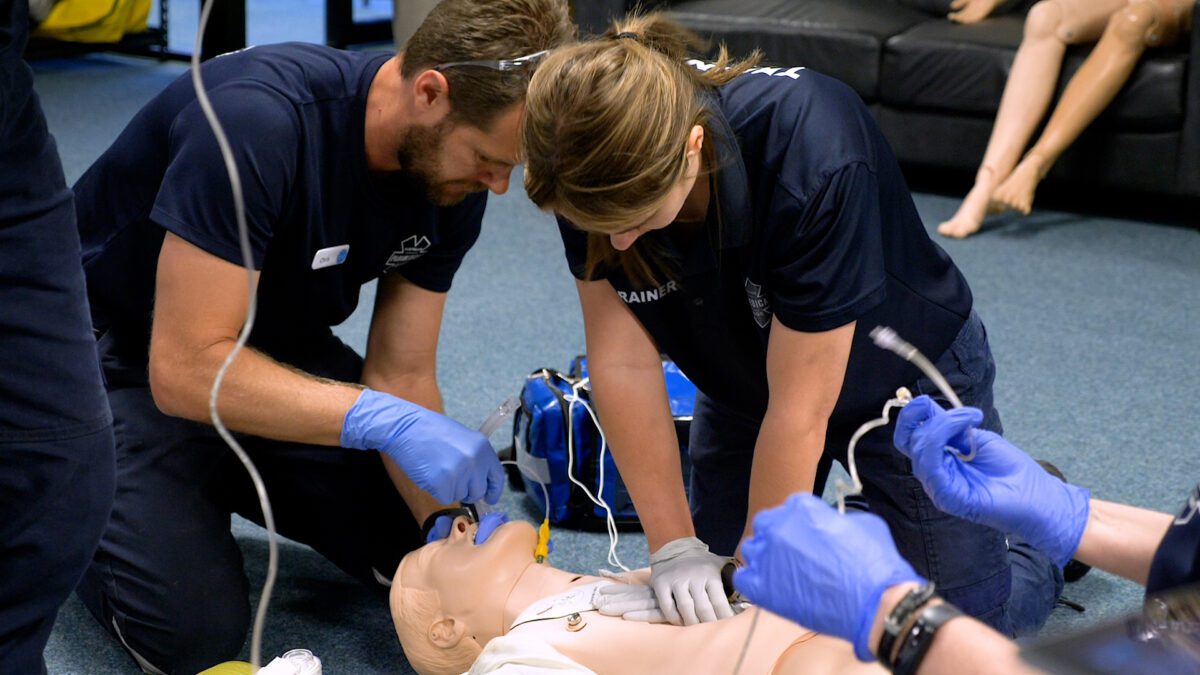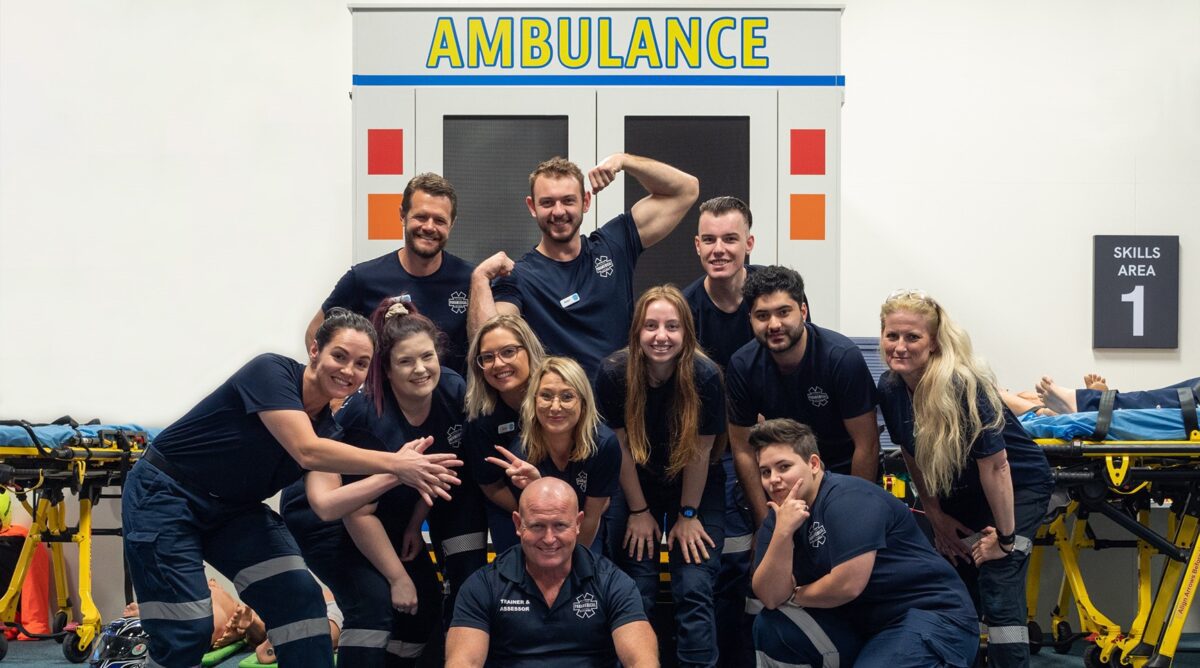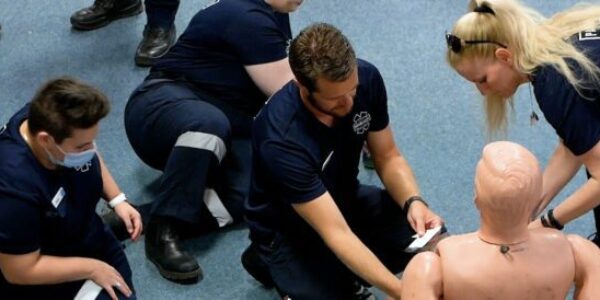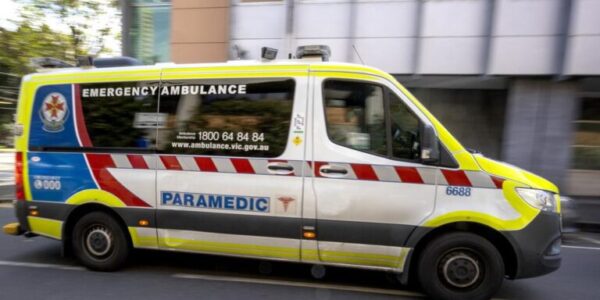Re-published 25th March, 2024.
Are you working as an Enrolled Nurse (EN) or Registered Nurse (RN) and wondering what a career as an on-road paramedic could be like? Instead of being in the ward all day/night, paramedicine can offer more freedom and autonomy without starting to study from scratch again. Holding similarities between the roles, transitioning from nursing to paramedicine can be much easier than expected.
How to transition from nursing to paramedicine
As you already know, nursing is incredibly rewarding. The job brings a variety of technical skills and knowledge, many of which are transferrable into other emergency and non-emergency healthcare roles.
What is the difference between a nurse and a paramedic?
The biggest difference between nursing and paramedicine is the setting you work within. Paramedics are generally the first on scene, providing on-the-spot life-saving care on-site, within a pre/out-of-hospital environment. It’s a paramedic’s responsibility to assess and stabilise the patient, later providing transport to the hospital (if needed). In comparison, a nurse can work within a hospital, or medical facility or else, offering ongoing treatment to patients. This can be consistent with bathing patients, dressing wounds, administering medications and more.
It is important to note that not all roles of a paramedic or nurse are the same. Depending on prior education, experience and the employer, roles and responsibilities can significantly vary. No matter which career pathway you pursue, just know that paramedics and nurses both play an integral part in Australia’s healthcare system.

Is there a nurse to paramedic course?
Here comes the great news – yes there is! The even better news is that there are numerous ways you can pursue the conversion from nursing to paramedicine. In this blog we will discuss the VET pathway.
The qualifications needed to become a paramedic
Much like nursing, paramedics need to be registered with the Australian Health Practitioner Regulation Agency (AHPRA). For those who do not already hold a Bachelor of Nursing (or similar) would be required to complete a Bachelor of Paramedic Science/Paramedicine. This course generally takes 3+ years full-time and upwards of *$70,000.
*Source: Edith Cowan University (2024).
If you’re not already a nurse but wish to learn how to become a paramedic, you can check out Australian Paramedical College’s (APC) dedicated pathway through the button below. If you already work as a nurse, keep reading to understand your advanced pathway.
The VET nurse-to-paramedic pathway
VET stands for ‘Vocational Education and Training’ and deeply involves hands-on training rather than ‘from the textbook’ learning that universities focus on. The advantage this has for you is that the HLT51020 – Diploma of Emergency Health Care (formerly known as Paramedical Science) validates your prior education and experience, giving you the chance to achieve your goal of becoming a paramedic faster.
To review this pathway, check out the step-by-step process below:
- Apply for RPL into the Diploma.
Get in touch with APC to review the timeframes, costs and requirements of studying the HLT51020 – Diploma of Emergency Health Care. Taking into consideration your potential credits, this is a cost-effective pathway to transitioning into the pre/out-of-hospital environment. Additionally, it allows you to continue working full-time as it is a self-paced course with flexible assessment due dates.
- Apply for VET entry into the Bachelor/Graduate Diploma at university.
Now that you have graduated from APC, you can use your Bachelor of Nursing and Diploma of Emergency Health Care to apply for entry but also credits into your dream course! This provides the opportunity for lessened study requirements and course fees!
-
Graduate and become a paramedic!
Congratulations – you now hold qualifications as a nurse and paramedic, and can work within both fields as a qualified healthcare professional.

What industries can I work in as a Diploma of Emergency Health Care graduate?
Emergency healthcare is not only a stable but also a growing industry. Should you choose to study paramedicine at APC, you have the luxury of choice upon graduation of the number of careers you could pursue whilst studying the bachelor. These are consistent, but not limited to:
- Emergency Services Officer (ESO)/Medical Emergency Services Officer (MESO)
- Industrial Medic
- Basic-to-Advanced Life Support Medic
- First Responder
- Ambulance Transport Attendant (ATA)
- Emergency Medical Technician (EMT)
Interested in learning more?
Upskilling to paramedicine has never been easier thanks to APC’s self-paced learning. We have over 10 years of experience operating within the emergency and non-emergency education sector, perfecting our courses to industry standards.
Click the button below to commence your application today and apply for our next intake.


